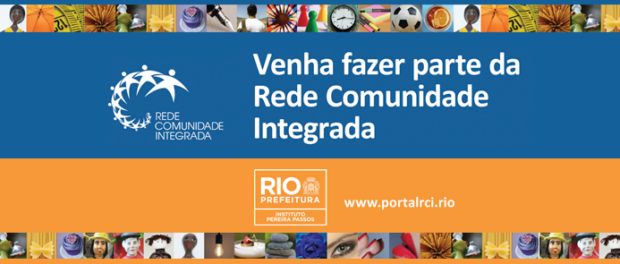
On May 25, Rio de Janeiro municipality’s urban planning and research institute, the Pereira Passos Institute (IPP), presented its city-wide information sharing platform, Rede Comunitária Integrada (Integrated Community Network, or RCI) to an audience in the favelas of Complexo da Maré in the city’s North Zone.
The RCI, still in its initial phase following a launch in December of last year, serves as a digital network for users to create, share, and search public profiles. The platform is designed for users to advertise and find “resumes, services, projects, companies, NGOs, events, governmental and private institutions, and other actions related to economic and social development in the communities of Rio de Janeiro.” The portal, and its pilot implementation in Maré, was a promise laid out in Mayor Crivella’s municipal Strategic Plan.
The Pereira Passos Institute hopes the RCI will facilitate information sharing between communities, connecting candidates to job opportunities and giving greater visibility to local events, services, and organizations. Despite all Rio has to offer, events and services often go underutilized. “Last Monday,” said the IPP’s Andrea Pulici “[Maré NGO] Luta Pela Paz held a job fair. The other institutions here had no idea it was going on.” With the RCI, the IPP hopes to change that.
Aside from public profiles, the portal includes a job search function, a virtual library stocked with websites and resources, and an interactive map displaying the locations of community services and events. The format is the result of a three-phase process of focus group consultation with Maré residents, conducted with support from the World Bank as part of the city project Rio de Excelência. Portal data is currently available for Complexo da Maré and the IPP intends to expand the RCI to other communities shortly.
Among those who participated in RCI’s community consultation process was lifelong Maré resident Begha Silva, who gained nationwide attention in 2015 for his Cineminha do Beco project, a free itinerant movie theater he created for the children of Maré. For Silva, the RCI was a welcome initiative. “It’s another tool for people to hear about what is happening here,” he said.
Also present at Friday’s event was Patricia Moura from the art collective Maré Faz Arte. Commenting on the multitude of artisans active in Maré, Moura said she had long thought that local artists deserved more visibility around the city. “I thought, why don’t we bring this out into the open? But it’s difficult.” She approved of the RCI, saying, “it’s showing our work to whoever wants to see it, but also to those who want to participate.”
The RCI’s greatest potential may lie in its ability to show the rest of the city the ingenuity and vibrance that lies within Rio’s favelas. Piê Garcia of the Favelas Observatory emphasized this point: “We are a territory of great potential… though historically seen as a place of violence and of absence. Having tools to talk about the favela in a different way is really important.”



